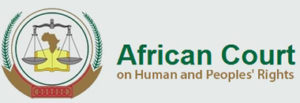African Court issues 2021 continental human rights blueprint
 The African Court on Human and Peoples’ Rights, on Thursday issued 2021 Continental Human Rights Blueprint which seeks to emphasize on the progress already made in the accomplishment of rights of people.
The African Court on Human and Peoples’ Rights, on Thursday issued 2021 Continental Human Rights Blueprint which seeks to emphasize on the progress already made in the accomplishment of rights of people.
The African Court as captured in its 2021 Continental Blueprint intends to extend this dialogue to the Member States in a closer framework and through diplomatic channels.
“Let us therefore commit together to give the African Court renewed dynamism by bringing innovations to bear on it, with a view to improving the quality of its performance both in its judicial and administrative functions,” Justice Sylvan Ore, African Court President stated in a New Year message copied to the Ghana News Agency in Accra.
As part of the task for 2021, the African Court seeks to explore and broaden the complementarity of the bodies of the African Union vested with a human rights mandate as a requirement set out in the Protocol establishing the African Court.
Justice Ore said such collaborations would foster dynamic interaction between institutions working in the same field.
He noted that; “until now almost all applications in respect of human rights violations have emanated from individuals and NGOs by virtue of the Declaration of States accepting the competence of the Court to receive such applications.
“Let us bear in mind that notwithstanding the Declaration or in the absence of the Declaration, individuals and NGOs can also petition the Court through the African Commission on Human and Peoples’ Rights.
“This is why I am calling for a leap beyond the tendency to be overly cautious, in order to make effective all the modes of referral to the African Court as provided for in the Protocol”.
Justice Ore stated that the price for the promotion of human rights in Africa and the right of every person who considers that their rights have been violated and therefore have to be heard by our organs.
He said the judicial work of the African Court will not be effective without the input and commitment of all stakeholders, including; the Member States of the African Union.
“On this point, the challenges are numerous, as evidenced by the high percentage of decisions that remain unimplemented and the flurry of withdrawals of the Declaration by some States, which suggest the beginnings of a serious crisis of trust that, fortunately, can be contained.
“The non-execution of the decisions of bodies vested with a human rights mandate by the States concerned is a threat to the human rights protection system in Africa,” he said.
He acknowledged that there is still time to initiate serious reflections on the future of its decisions in order to raise, through their effective implementation, the level of human rights protection, strengthen confidence in institutions and to meet the challenges of its mission. This is the key to the success and credibility of its work.
“We must further develop a democratic culture by giving force to the law as well as to judicial and democratic institutions.
“Without a judicial culture, respect for human rights and for the laws that constitute the key link to the rule of law and peace will be but an illusion.
“We have a great responsibility in this regard, and one of the ways to foster the hope of a better future in the implementation of human rights at both the continental and national levels is cooperation and active partnership.
“We are called to work together, without exception, because regardless of where they are, everyone in their place is an opportunity for our humanity. The African Court will continue the judicial dialogue that it has already begun with the high national courts on the one hand, and also with the regional human rights courts on the other”.
Justice Ore said the African Court would focus its action to strengthen inter-institutional cooperation and complementarity, consolidating its judicial work quantitatively and qualitatively, develop judicial diplomacy with other stakeholders, and work harder to enhance the visibility of its actions.
“For the African Court, the year 2021 marks the beginning of its 2021-2025 Five-Year Plan, which is the third in a series, as well as the 15 years of its establishment.
“Allow me, even if this is not the time for stocktaking, to acknowledge the young Court of human rights in Africa, the outstanding merit of its work and invaluable contribution to the protection of human rights in Africa,” Justice Ore stated.
Justice Ore said the Continental Court would also focus on the promotion of democracy and the rule of law as the foundation for peace and social harmony.
He said despite the many limitations inherent in the COVID-19 pandemic prevention measures, the African Court had maintained the level of its judicial work and, in terms of volume of work.
Justice Ore said the African Court in 2020 issued as many judgments and ordered emergency interim measures against the backdrop of the right to health, life, property and the exercise of political rights.
Source: GNA
